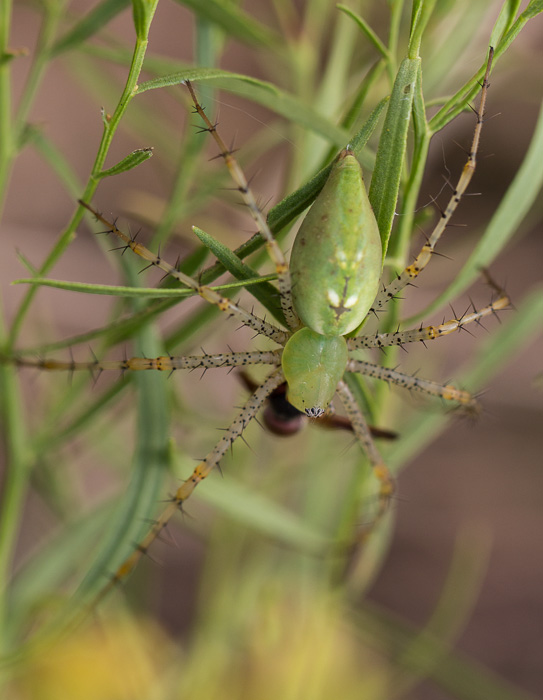Tuesday, April 2nd, 2013
We headed south to Jelks preserve a few days before Christmas with new camera bags to try out. Mike was just getting over a bad cold, so we took a shorter loop than we normally would. There are several shortcut trails crossing the main loop around the 614 acres. One edge of the park borders the Myakka River. The parking lot is in a more arid, open area, but as you get closer to the river and the trees get thicker, the blankets of epiphytes on the trees tint the entire canopy pink.
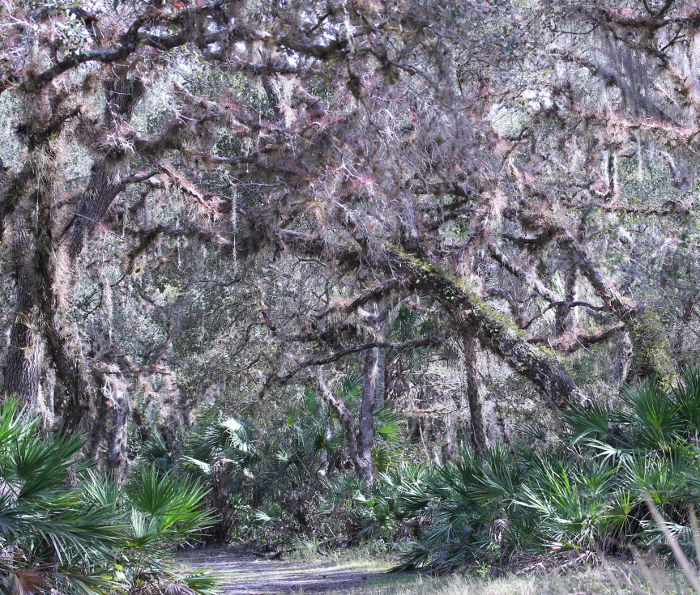
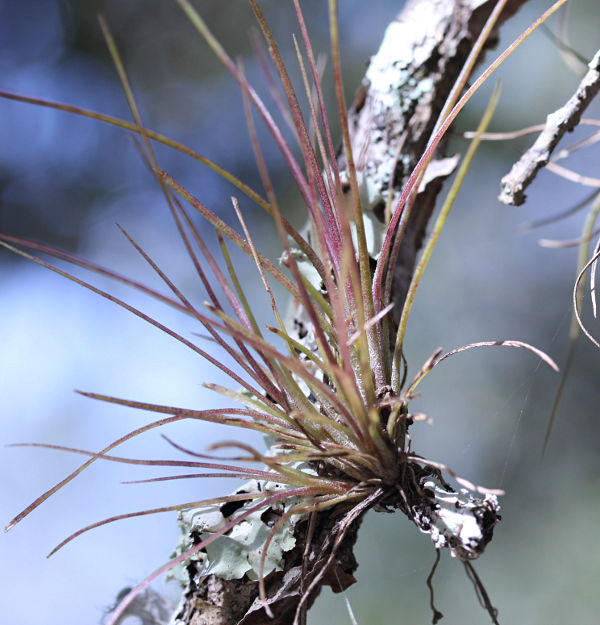
sori on underside of resurrection fern
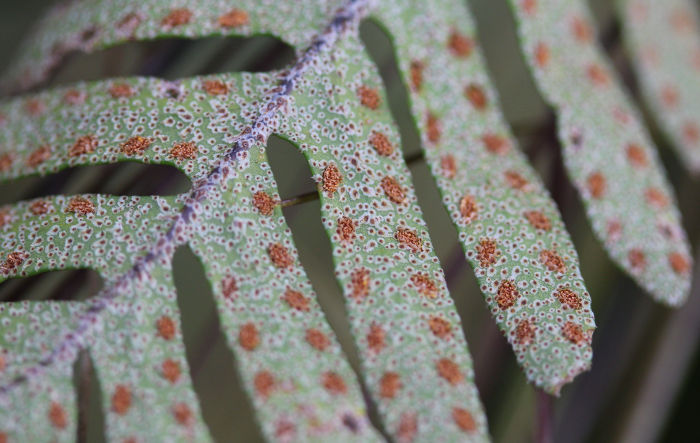
Quill-leaf and air plants, Mike’s, as are the rest in this post
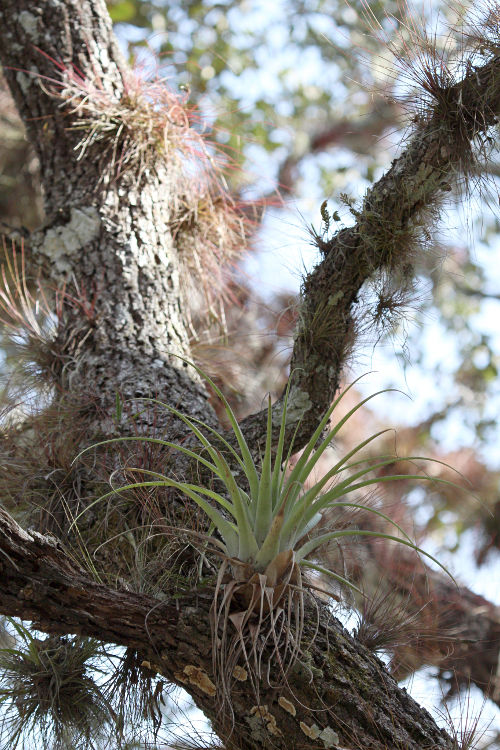
Deadly poisonous rosary pea
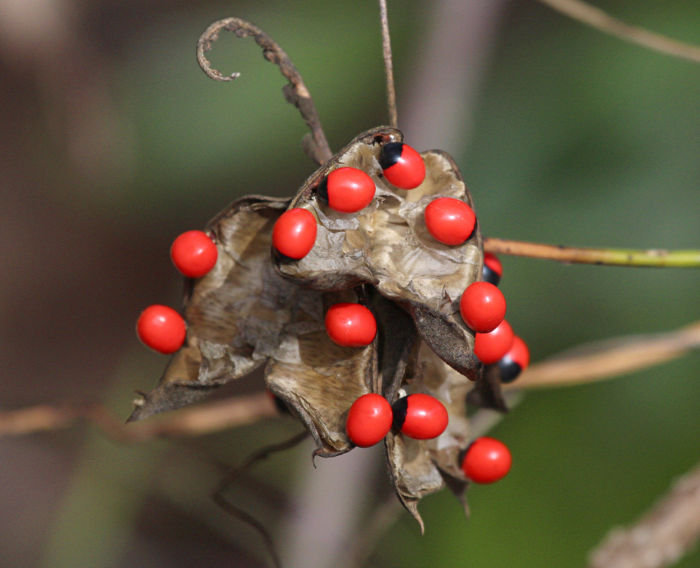

It had been cold recently, and the armadillos were out. One of them squeeked at us and scampered off.
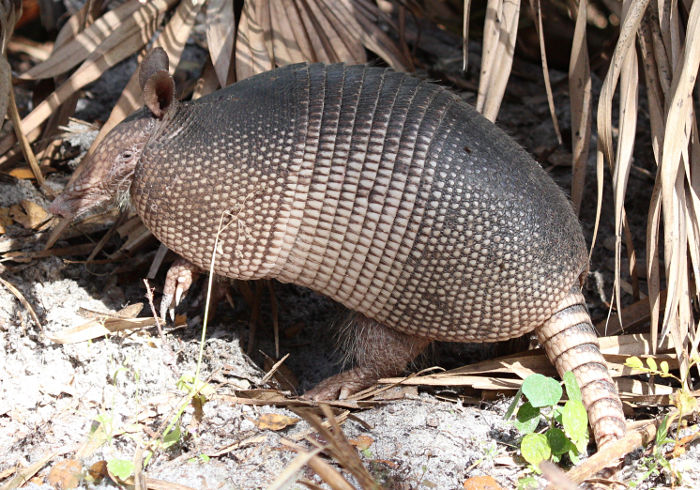
Across the river a spunky kingfisher landed on a dead palm, although still quite far away
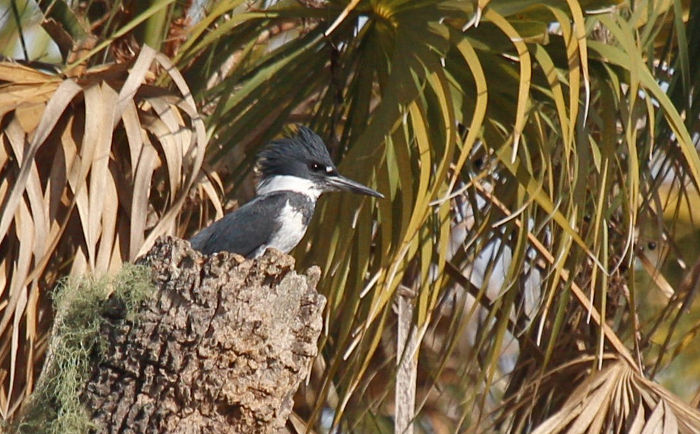
Friday, March 29th, 2013
We took a weekend trip back to North Florida in early December, intending to go to Big Shoals State Park. Big Shoals is northeast of White Springs, a small community that Mike said looks about the same as he remembered from over two decades ago, hidden from the march of modernization by a cloak of poverty. We passed by worn buildings and rotting railroad tracks. Near the single blinking amber/red lighted intersection, a church’s food pantry had a line of people collecting items. On the highway to Lake City there was an inspection station manned with a police car that said that all trucks, pickups and vans had to pull over. The pickups on the road with us weren’t stopping though. We drove the GTO, which is a much more comfy ride than my pickup, but it’s not made for rough or unpaved roads. It turns out that both entrances to the park are long stretches of dirt. So, we headed to Alligator Lake Park instead, which is all paved.
It was one of the foggiest mornings I’ve seen in Florida. The slight chill and crunching leaves under foot made it feel like fall, which really doesn’t reach further south.
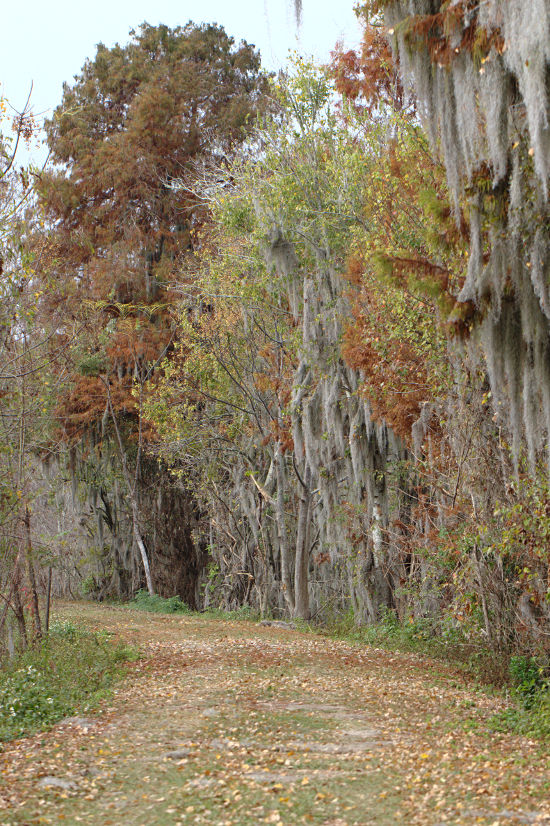
Lantern plants don’t seem to be native.
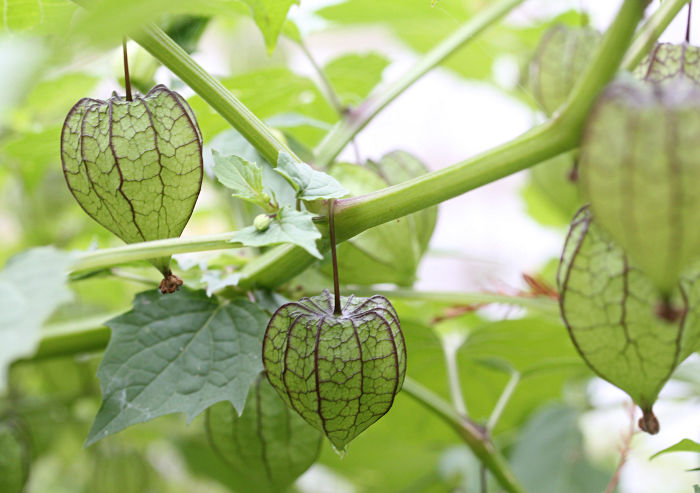
spiderwort
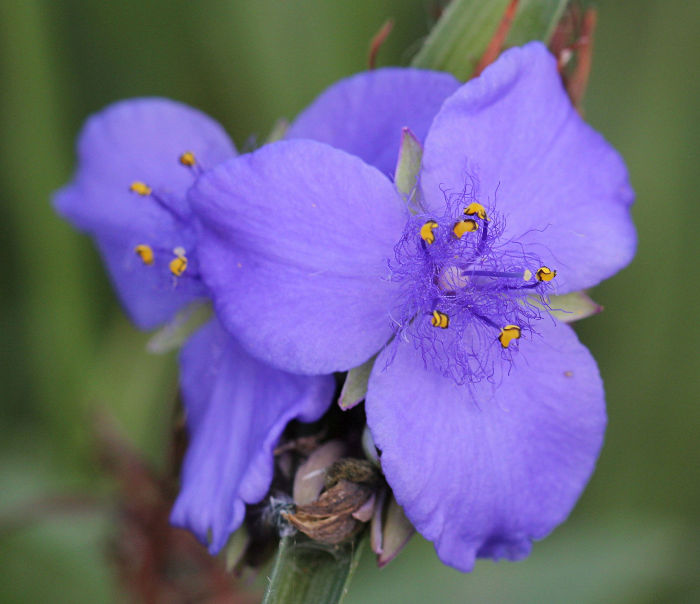
It wasn’t until around noon that the fog burned off and it warmed up enough for the insects to start flittering about. There were gulf frittilaries, as there usually are, but the other butterflies were cliquish, with several members of a species near each other but not seen in other areas of the park, seemingly more tightly grouped than changes in habitats would make likely.

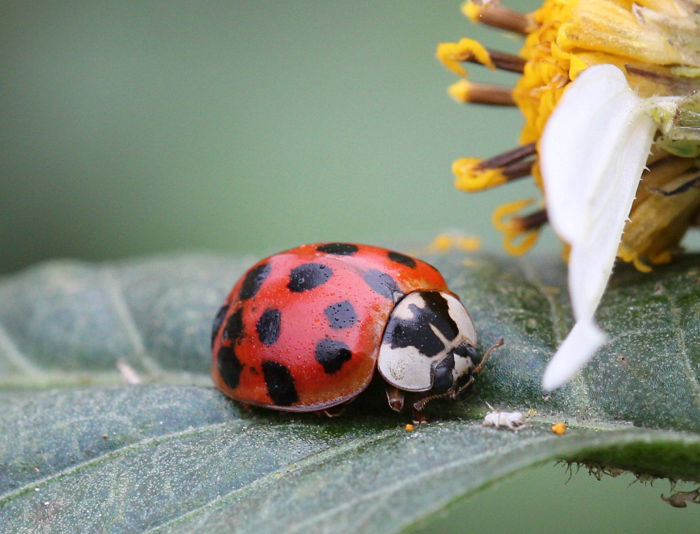

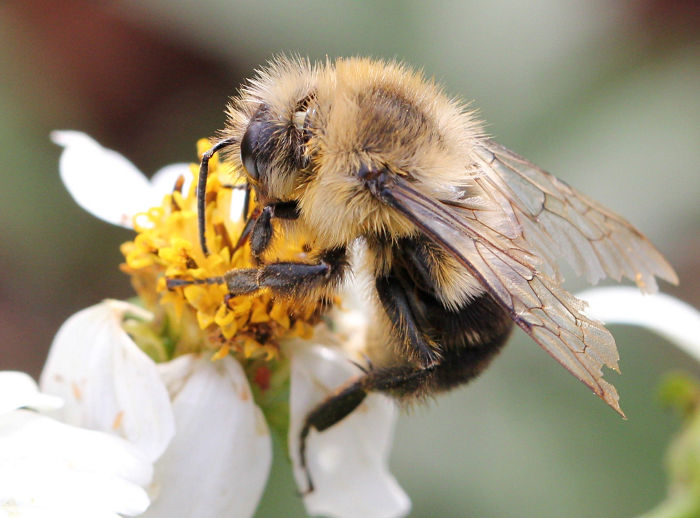

red waisted florella moth, by Mike

We also managed to get more flitty bird pictures than our usual collection of blurry bird butts.
yellow throated warbler
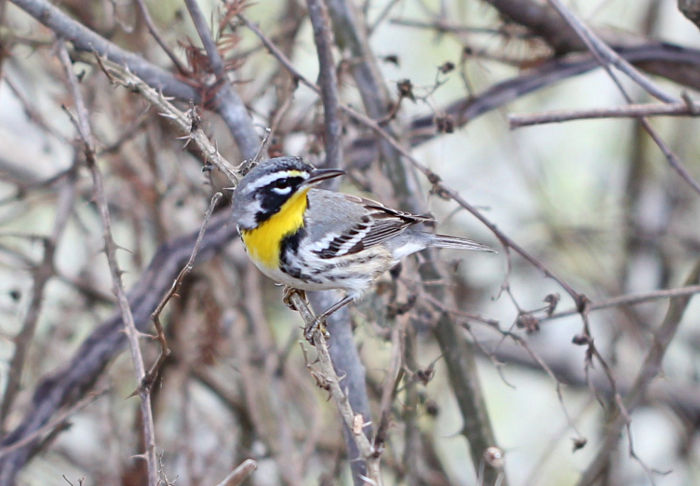
cardinal. This and the rest of the birds are Mike’s.
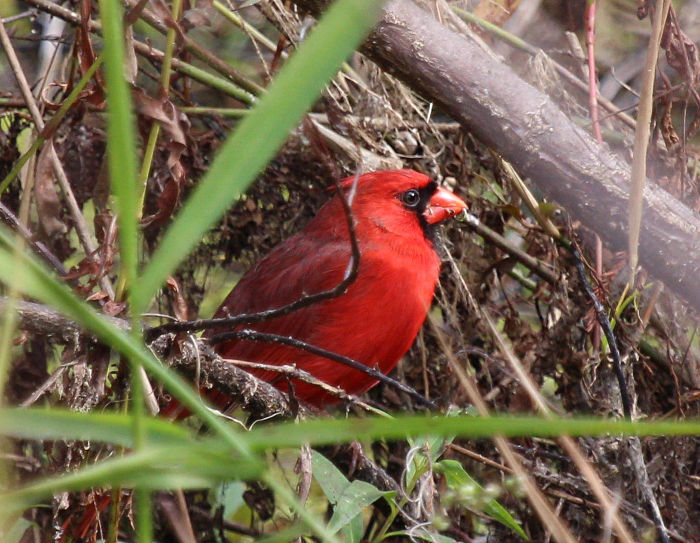
bluegray gnatcatcher
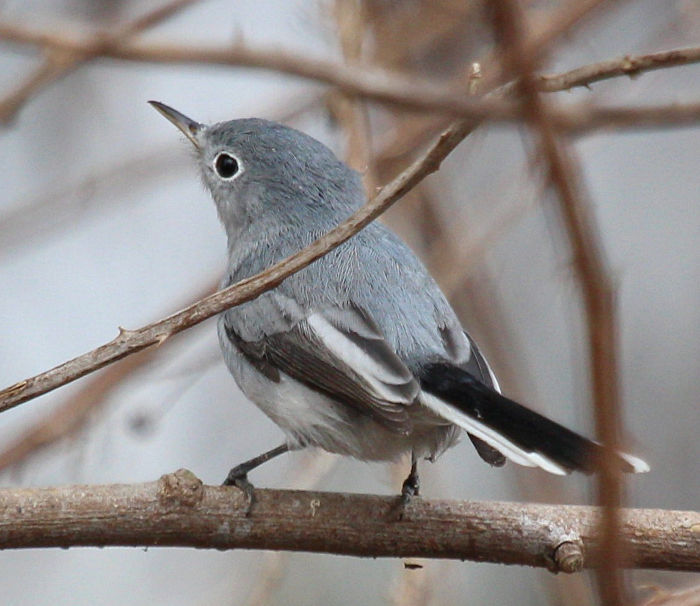
palm warbler
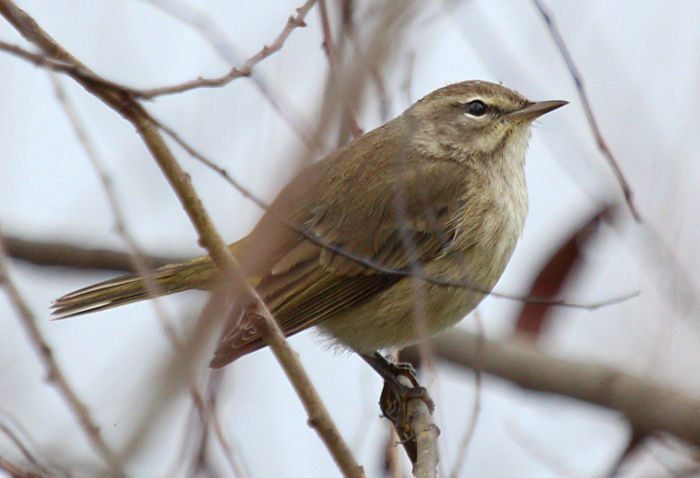
black and white warbler
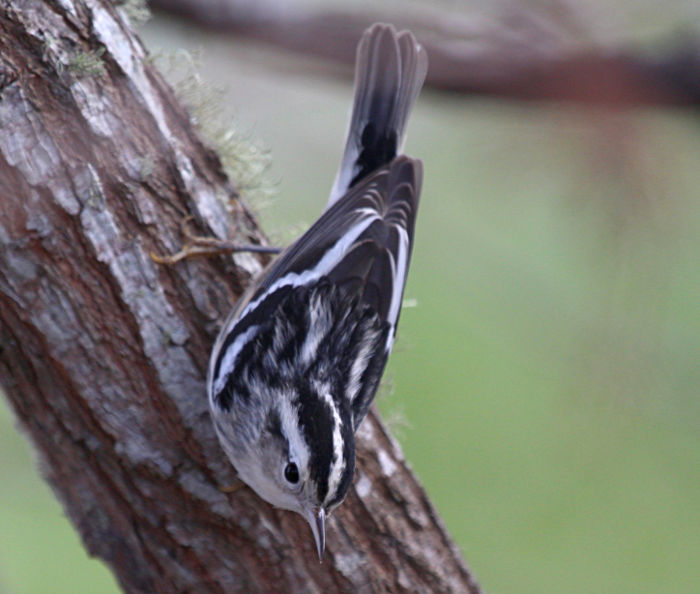
coot

And some reptiles:
alligator by Mike
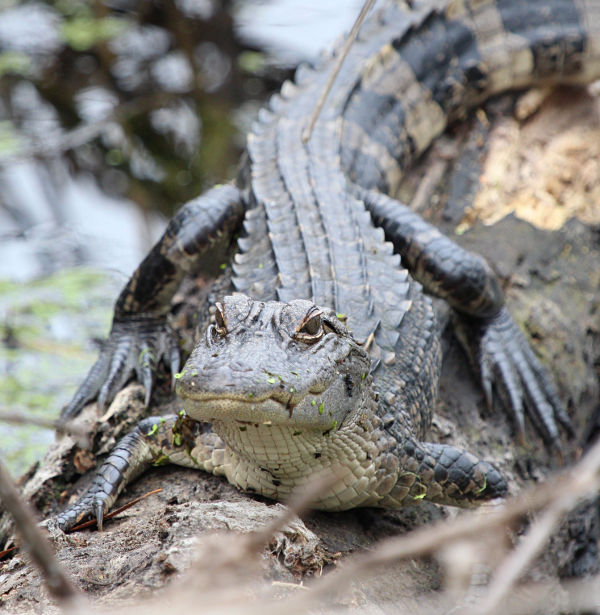
green anole
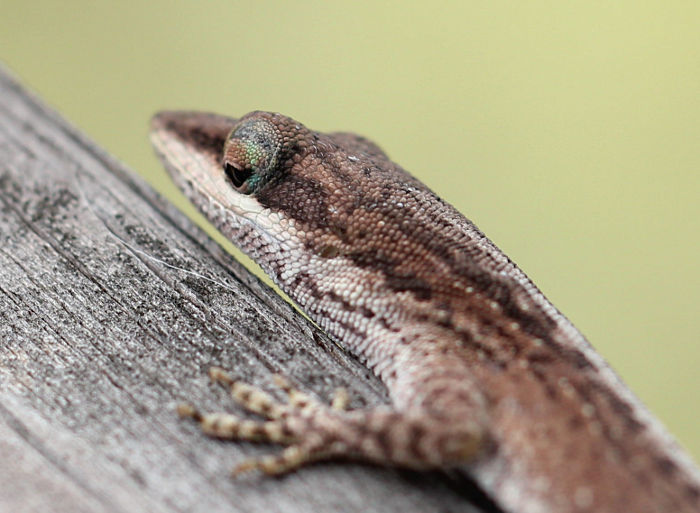
Thursday, March 7th, 2013
First, mine, of sky dwelling creatures at Sawgrass Lake Park in early December.
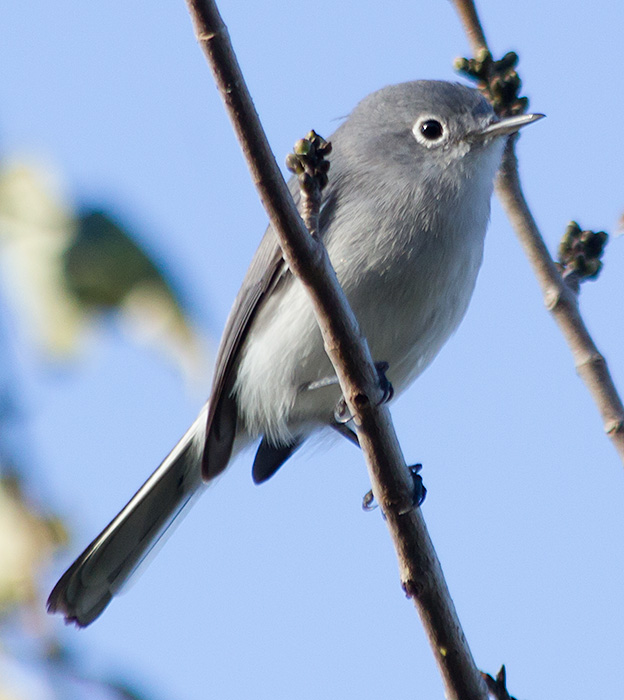
Pileated woodpeckers are noisy and fairly common, but they hop just quickly enough that it’s difficult to get even decent pictures of them.
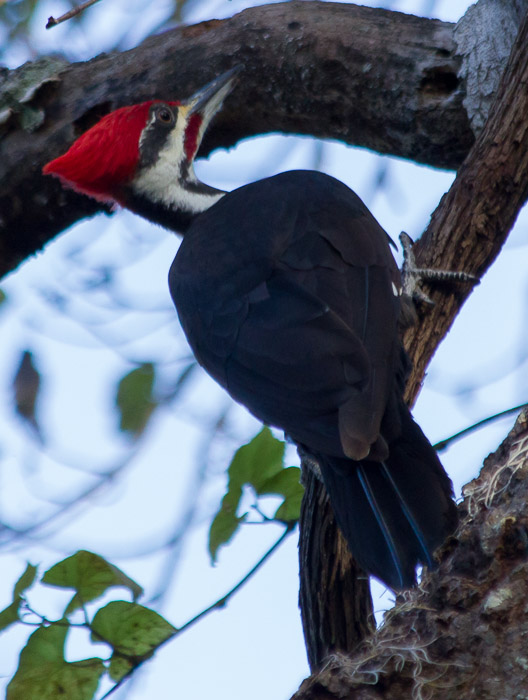
The rest are Mike’s. He did the conversions on all of this post as well.
The yellow-rumped warbler is also pretty common. On this morning there were several little birds fluttering through branches near enough to attempt to take their picture.

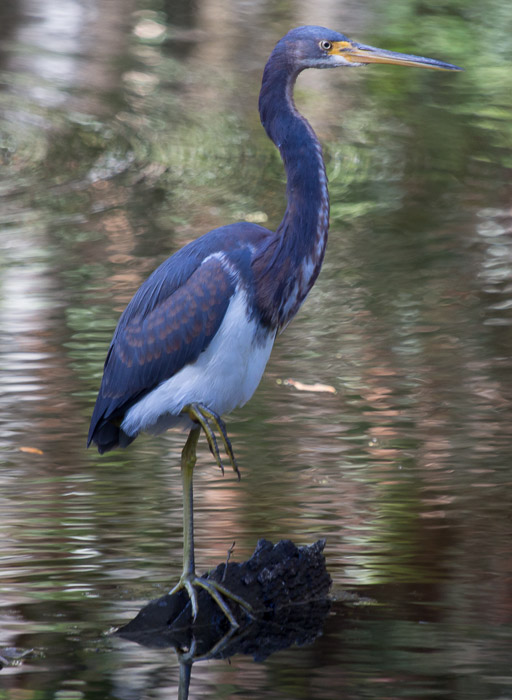
This is a sunfish of unknown type.
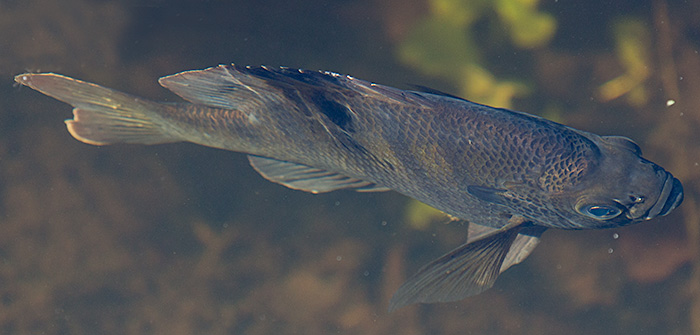
softshell turtle
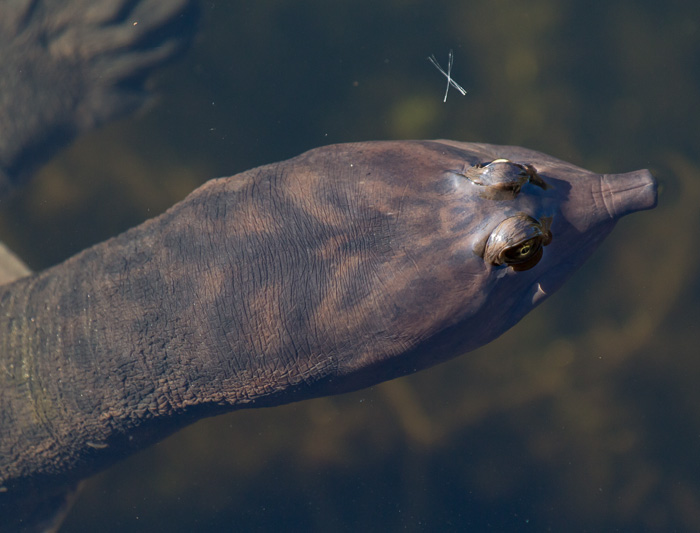
This is probably a rather old turtle that has seen some bumps and scrapes, possibly a yellow bellied slider
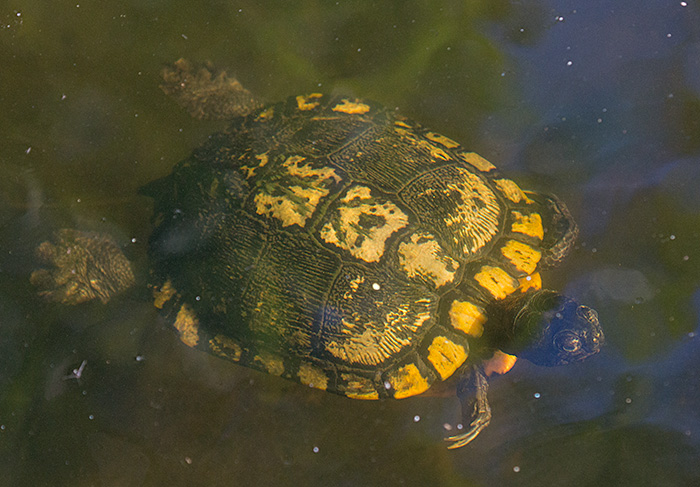
red-eared slider, with coat of algae
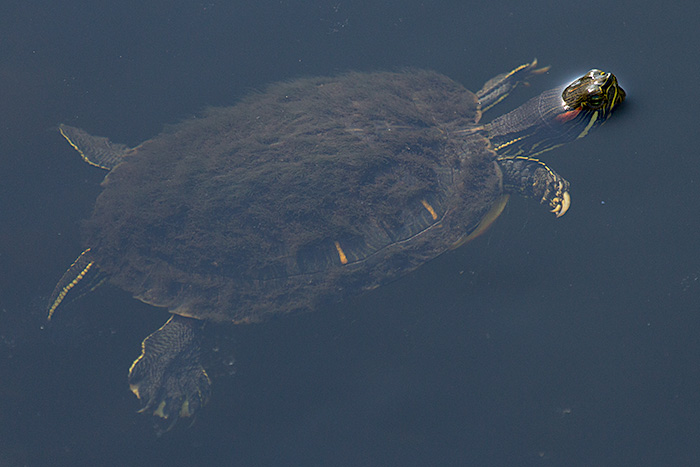
Sunday, February 24th, 2013
We moved about two weeks ago (again). Our new place looks out on a drainage pond and equestrian field. Although we’ve yet to see any horses, we have seen lots of birds (great egret, ducks, robins, blue jays, parakeets and Mike saw a kingfisher), a few turtles, ubiquitous brown anoles of course, a black snake, and today a coyote. We’ve heard them yowling at night, a crazier sound than domestic dogs, but were surprised to see one out during the day. Pictures and processing by Mike, using the NEX-5N.
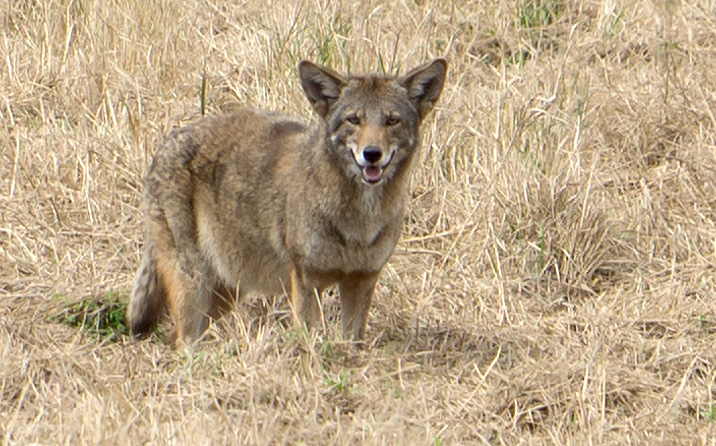
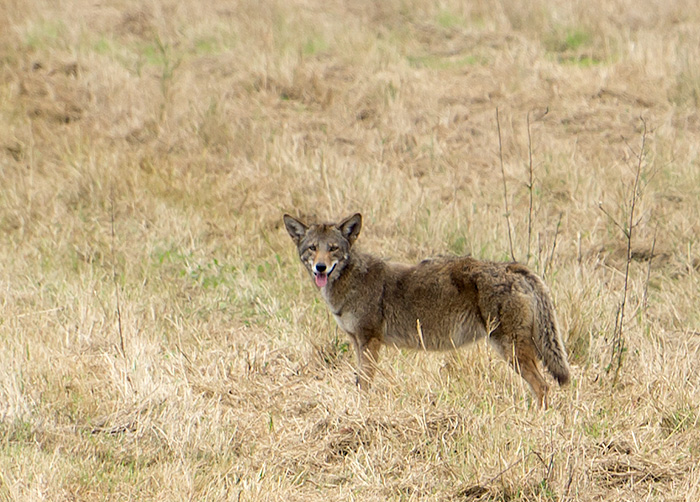
Friday, February 22nd, 2013
The best part about Highlands Hammock State Park was the boardwalks, especially on the cypress swamp trail. The first section has lovely corner benches which is followed by a narrow section with only one railing that keeps your shoes dry, but lets you feel a part of the swamp. The unofficial Florida Hikes trail report described sour orange milkshakes from the concession stand in the park. We walked under some wild citrus trees, but all we found listed at the perhaps open restaurant was standard park lunch fair. Perhaps those are seasonal. Several old oak trees were also noted as attractions on the park maps, but these seemed mostly to be large, knarled, dead stumps.
It was Thanksgiving weekend and there were quite a few people, especially later in the day. Though close to civilization, the route that google recommended was over a longish washboardy dirt road. The primary entrance (at the far side of the park relative to us) was paved, but had oddly painted lane lines and speed humps which left it really unclear where especially eastbound traffic was expected to be.
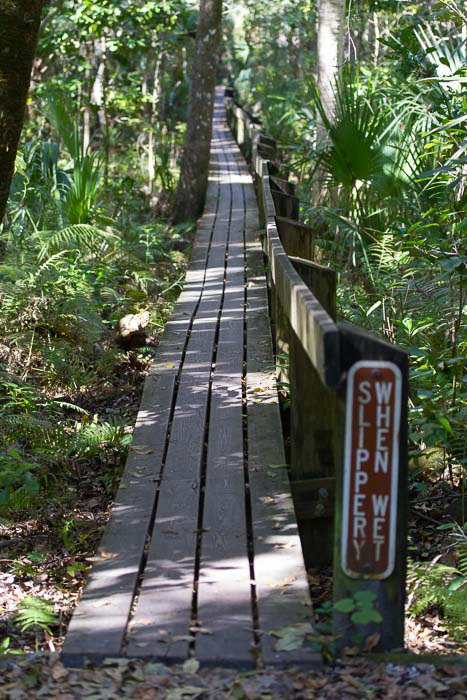
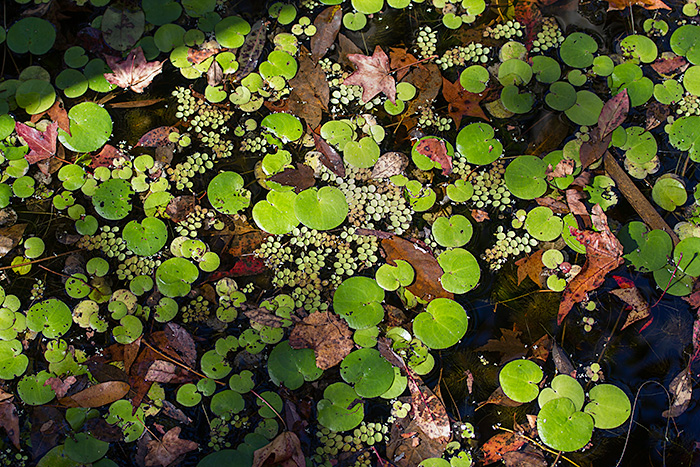
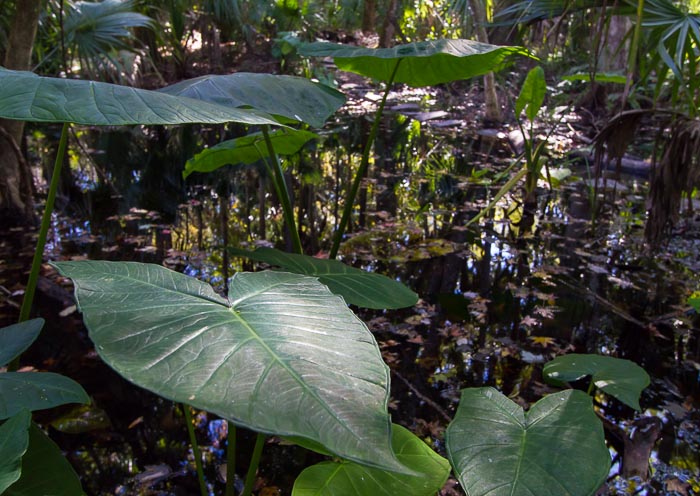
Mike was having more luck with the wildlife. The rest are his. He also converted these pictures for the blog.
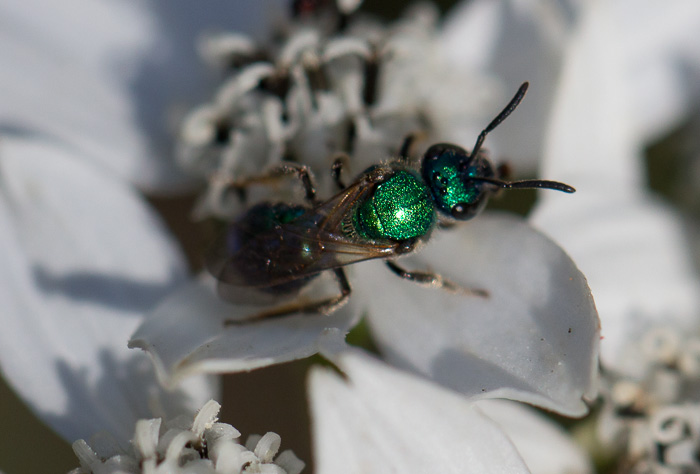
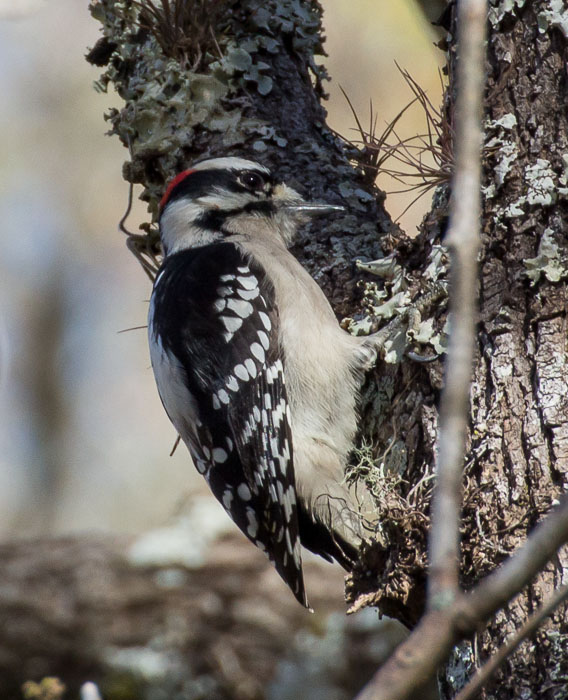
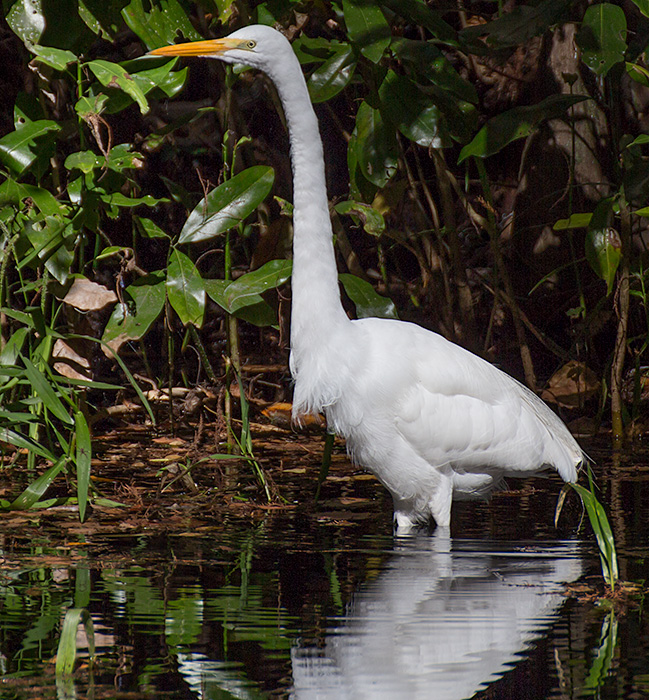
Friday, February 22nd, 2013
“Inglis Island was developed as part of the construction of the Inglis Lock and Barge Canal during the 1960’s.”(FSP) It was intended to be part of a cross Florida canal system that met resistance from environmental advocates, and eventually was turned into a greenway.
This is new land then, and not always public. There are decaying bits from previous uses. Mike took the trees and hunting table picture and converted the photos for this post.
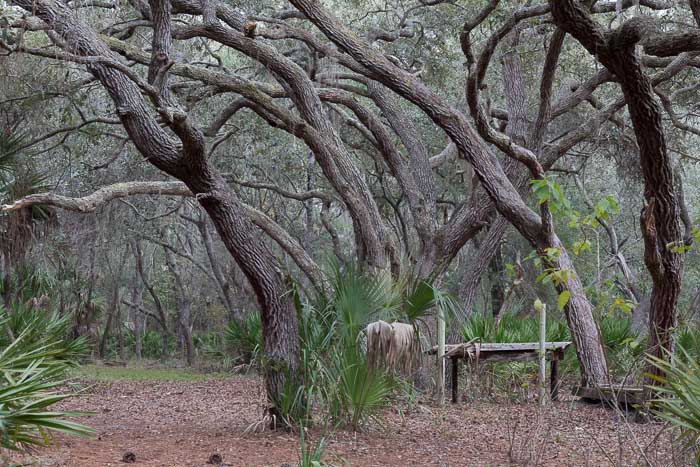
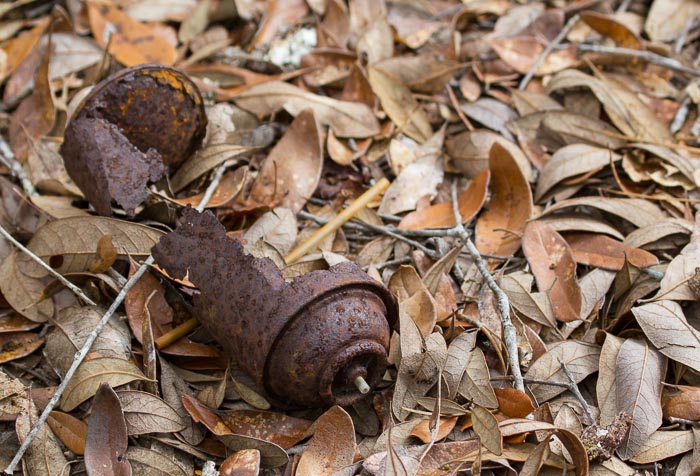
We also noticed several remnants from hunting of the non-human variety this trip. Mike took the jaw bone picture.
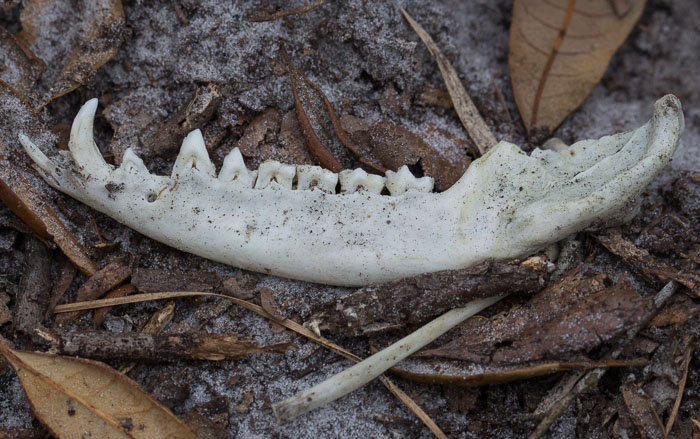
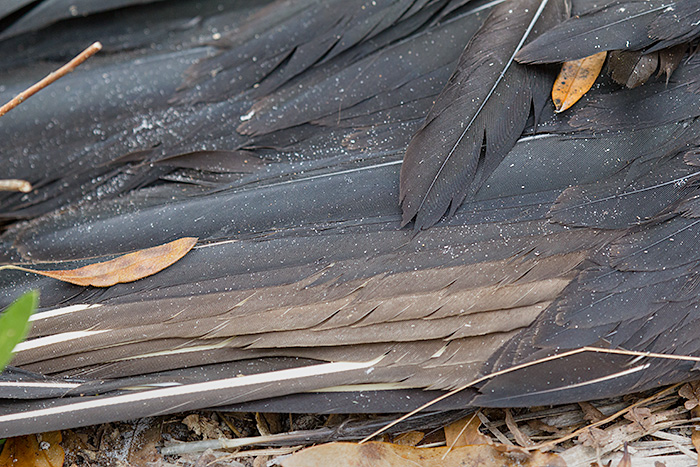
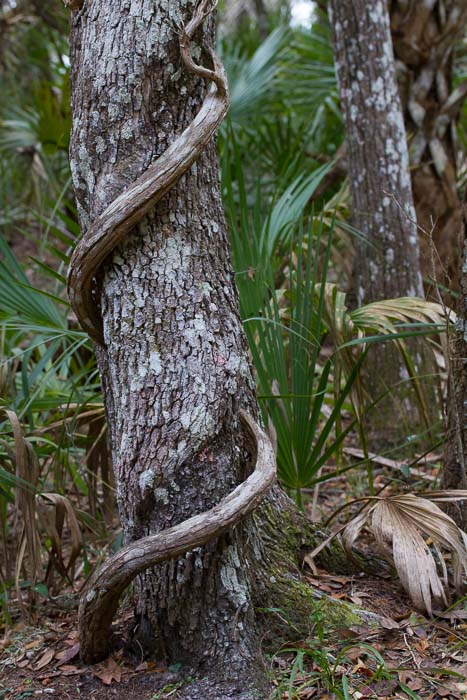
Deer moss? by Mike.
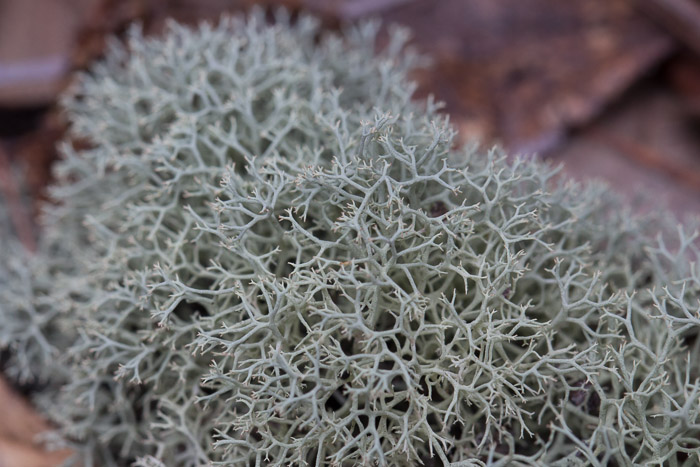
While I looked up, Mike looked down. We heard the trumpets of the sandhill cranes first before they came into view. This was the largest flock of them that we’ve seen.
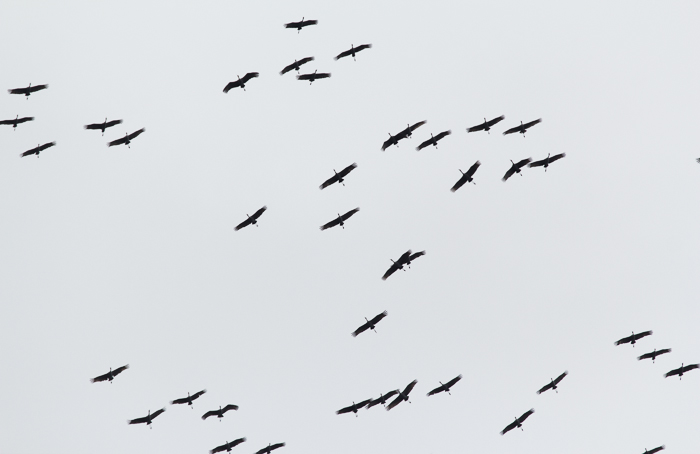
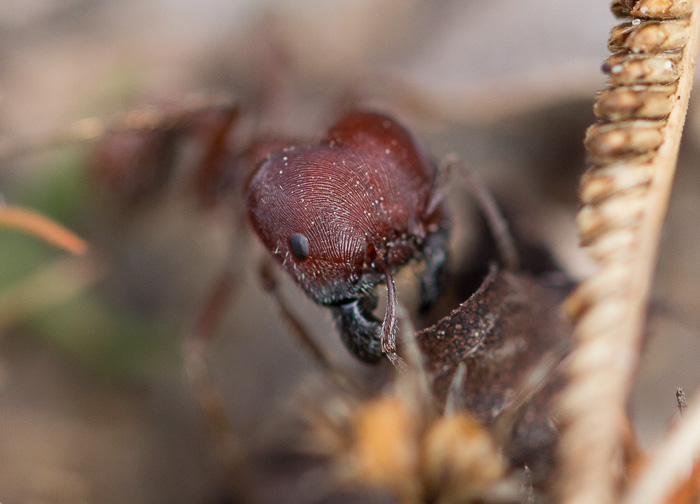
There were fewer butterflies than our previous visit, but still many fluttering about.
Either a long tailed or dorantes skipper.
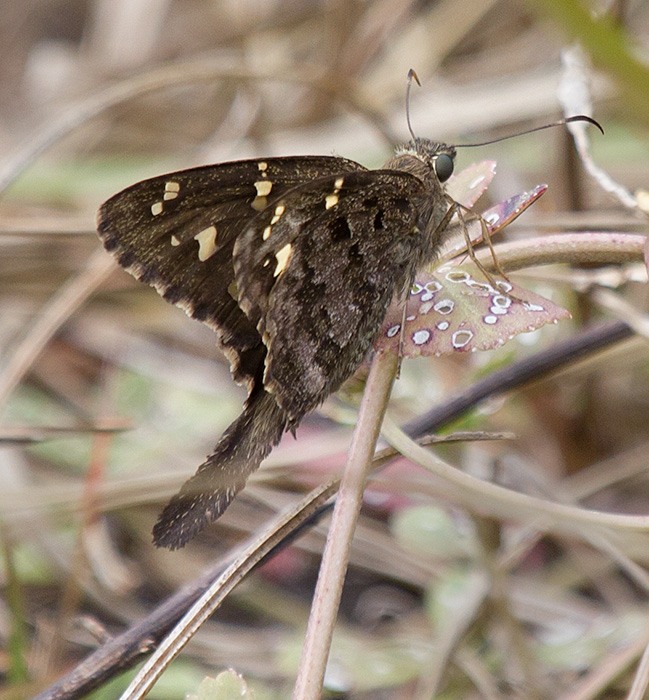
Buckeye
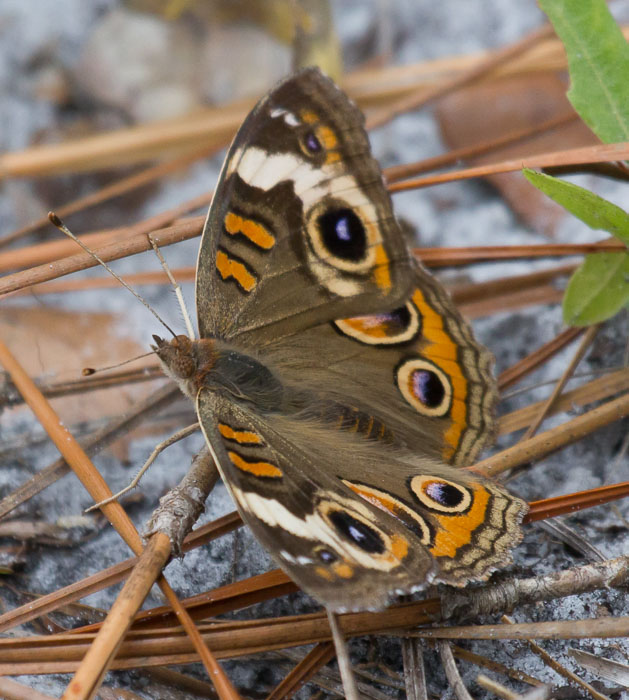
Satyr with its wings open.
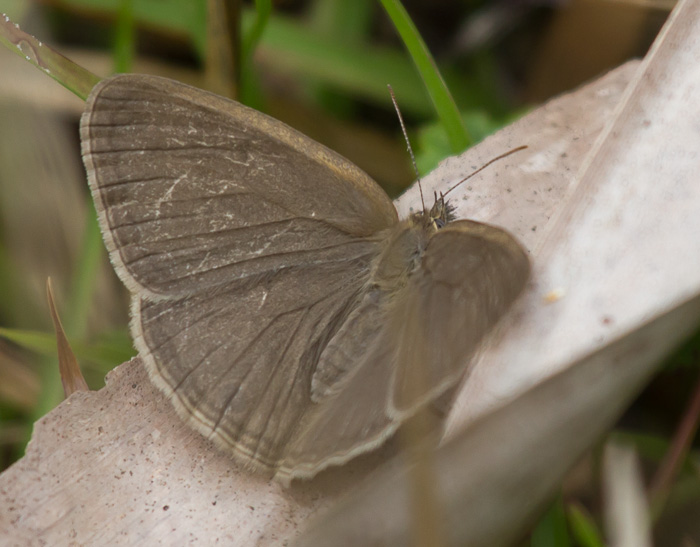
The rest of these are Mike’s.
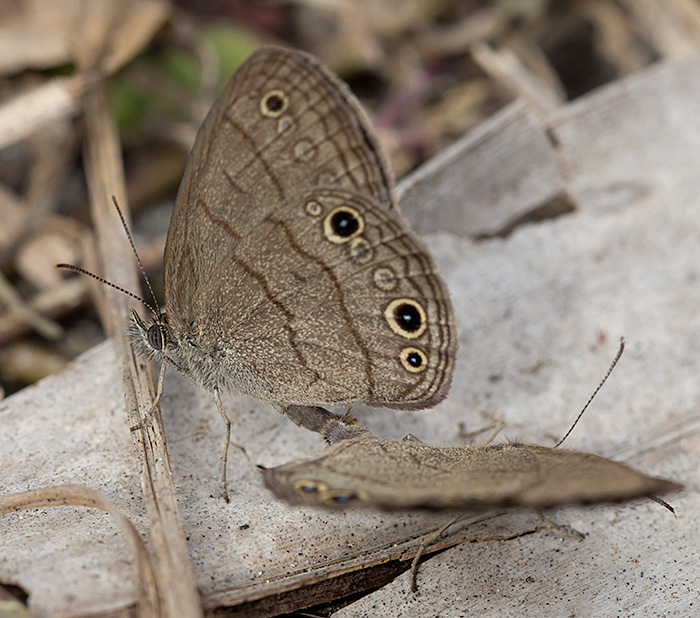
Gemmed Satyr

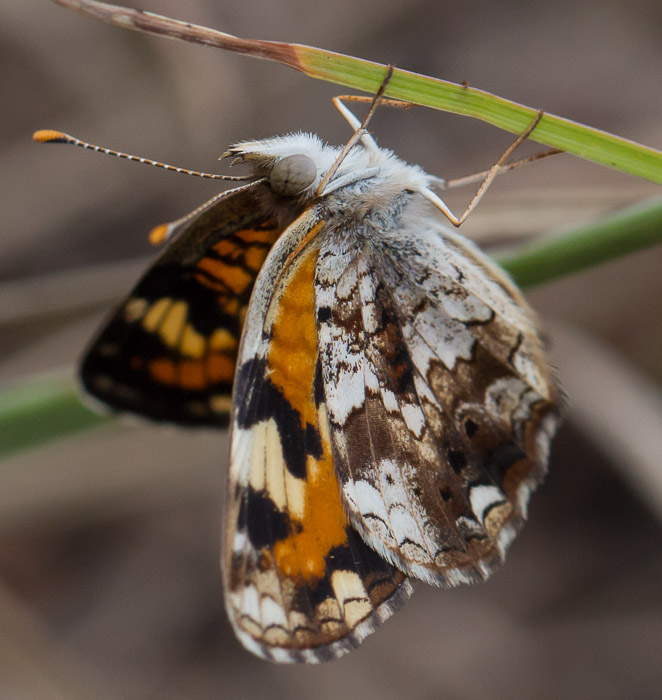
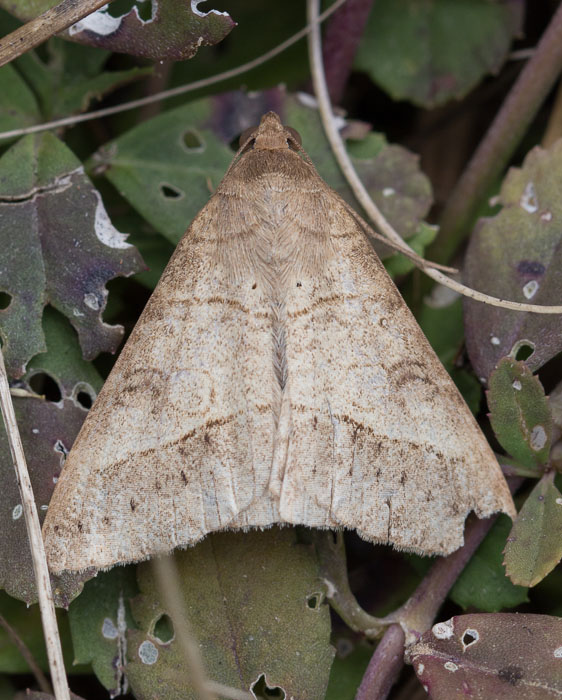
Green lynx spider guarding its catch. And watching with many eyes.
